Changing education by educating for change

UNIVERSITY PARK, PA






The Penn State College of Education is focused on preparing professionals who provide leadership and exemplary educational and related services to improve the lives of individuals in a changing and complex global society.
The Penn State College of Education, located on the University Park campus in State College, Pennsylvania, offers the resources of a world-class, public research institution together with challenging and innovative classroom study and ample opportunities for learning by doing. When you become part of our community, you will find:
• We value experiential learning. With opportunities to become immersed in all types of educational environments, our students graduate feeling empowered to enter any professional space with confidence in their skills and abilities.
• We value community. As one of the smallest academic colleges on the University Park campus, we afford each student individualized attention from both faculty and staff. With only 1,500 undergraduate students, our student body uplifts and supports one another through the ever-changing landscape of the field of education.
• We value discovery. As our faculty members head groundbreaking research, our undergraduate students are constantly learning new ways to engage future classrooms and think critically about the policy that shapes education and human services in America.
• We value diversity. As an emerging antiracist college, social justice education and equity work is at the core of what we do. We believe classrooms, clinics and policy rooms are fertile ground for creating equitable, forward-thinking change in our nation.



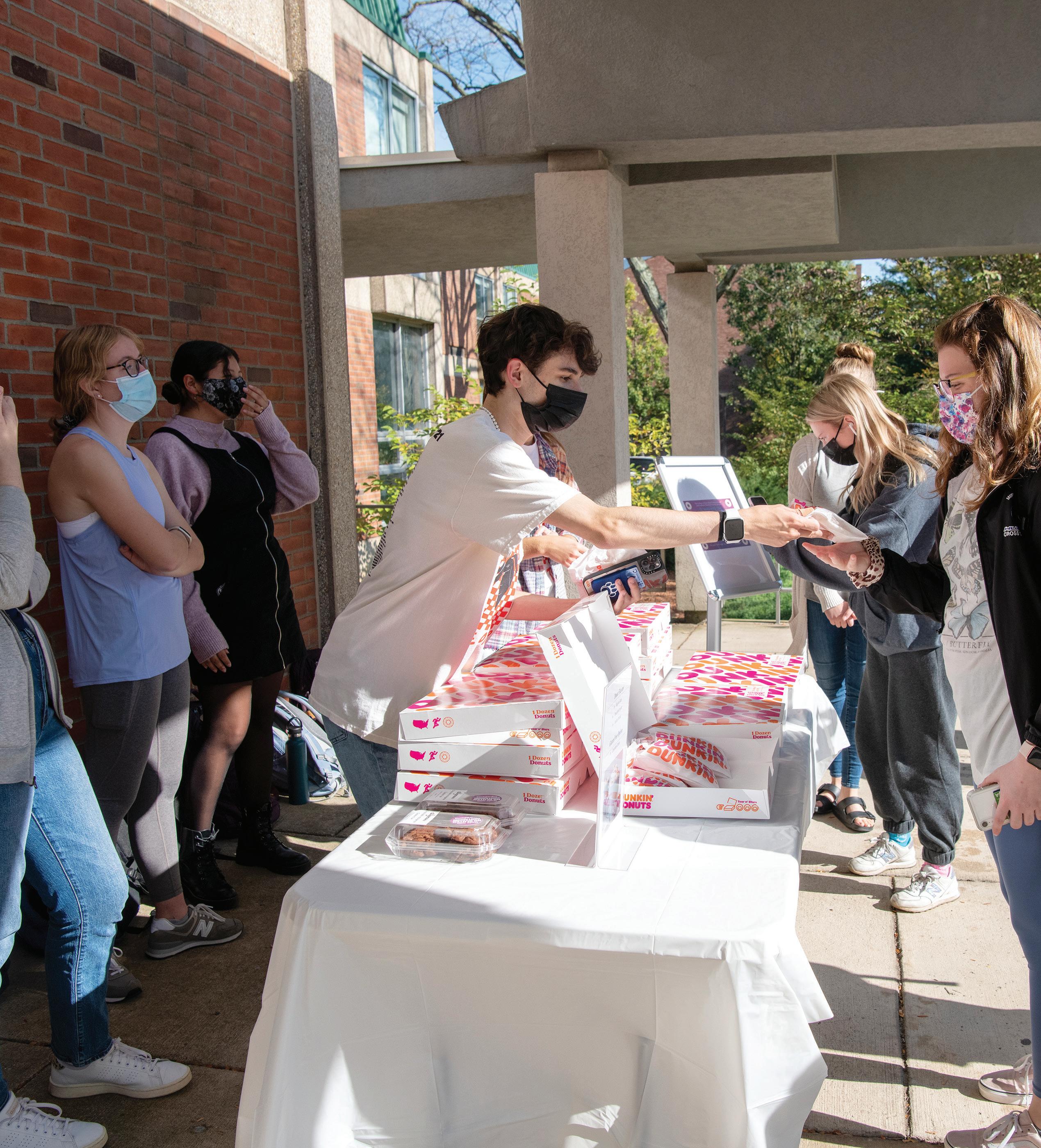

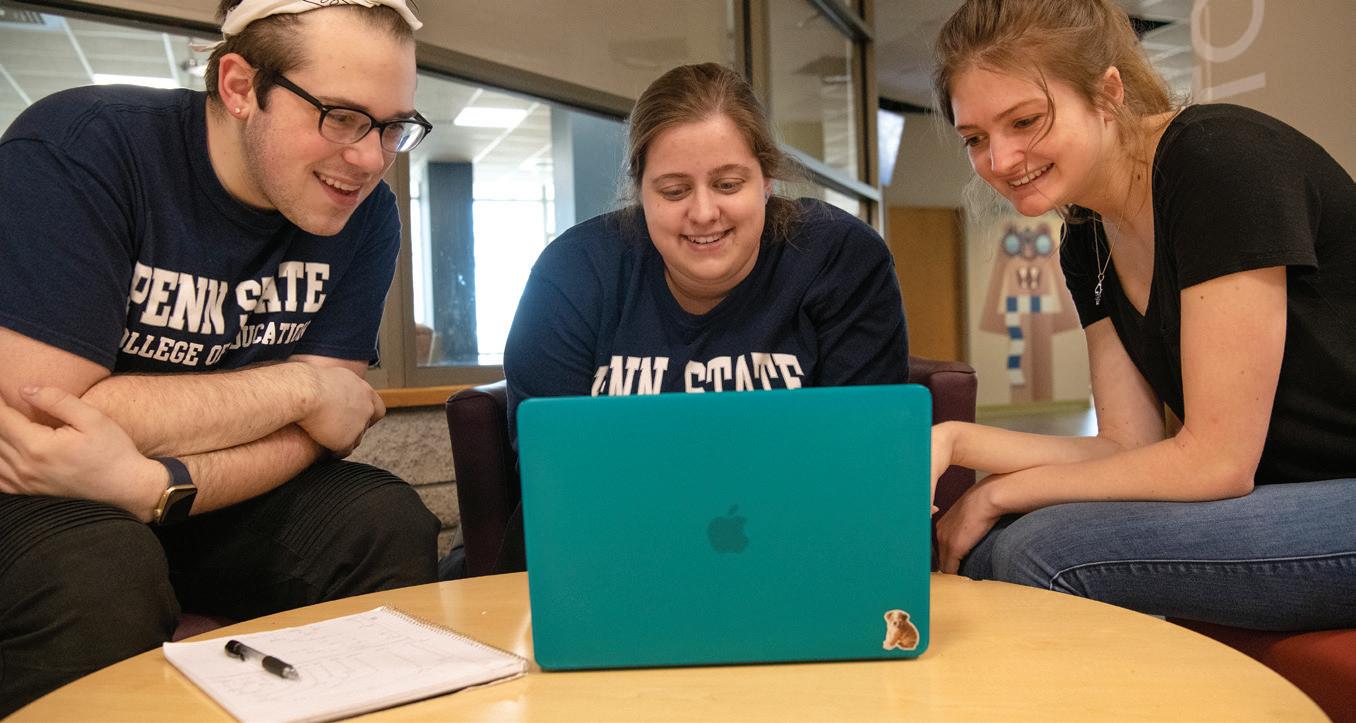
The College of Education prepares professionals who provide leadership and exemplary educational and related services to improve the lives of individuals in a changing and complex global society. Explore what we have to offer.
• 8 Bachelor’s Degrees: Teacher Education (6), Rehabilitation and Human Services, and Education and Public Policy
• 6 Minors: Social Justice in Education, Addictions and Recovery, Early Development and Education, Education Policy Studies, Special Education, and Rehabilitation and Human Service
• 24 Master’s Degrees (17 residential, 7 World Campus)

• 16 Doctoral Degrees (11 Ph.D., 4 D.Ed. + 1 D.Ed. in development on World Campus)
“Learning and preparing to be a classroom teacher in Penn State’s College of Education is special because the faculty, supervisors and mentor teachers consider ourselves to be your colleagues in this profession. We want to learn alongside you because we know that good teaching means we are always learning from one another. We are in this together.”
— Andrea McCloskey Associate Professor of Education (math education)The Penn State College of Education Faculty have raised the bar for research and teaching, including a focus on what has become known as the Learning Sciences. The work going on both in the classroom and through research directly related to the Learning Sciences is changing our understanding of how we learn, and how we need to teach.
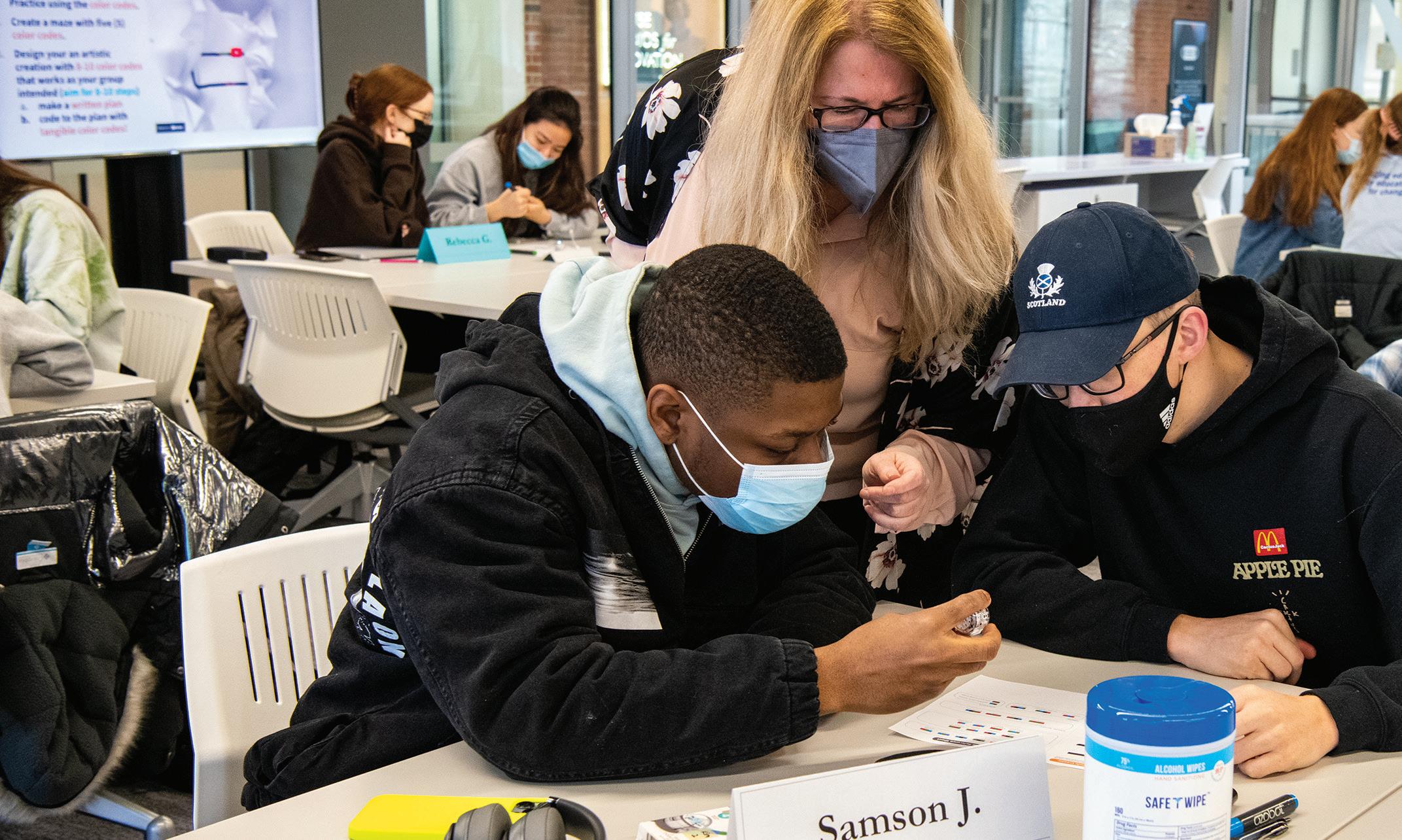
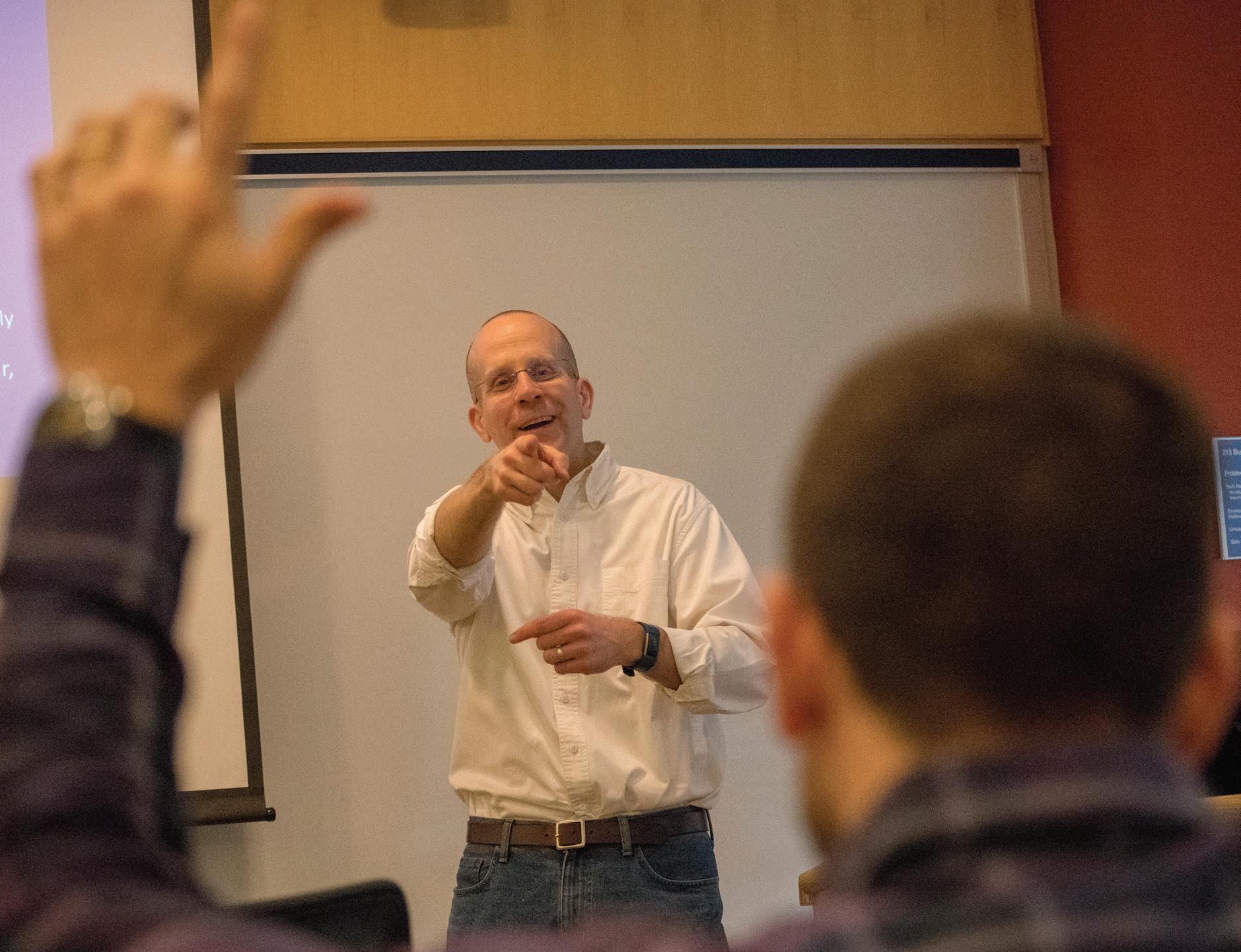
“The RHS program prepares students for a wide range of careers in rehabilitation, mental health, schools, as well as occupations in occupational and physical therapy. Through an understanding of policy, core skills, diversity, equity, and inclusion, foundational knowledge, and a robust internship experience our students are well situated to enter the world of work or graduate school as advocates and agents of change for people with disabilities and/or individuals with marginalized identities.”
— Pia Smal Associate Teaching Professor (RHS)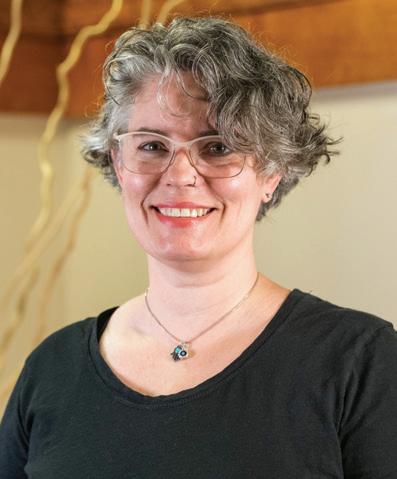
Our dedicated faculty includes:
• Equity-minded advocates and change agents
• Former principals and Pk12 teachers
• Past mental health counselors and rehabilitation professionals
• Authors of scholarly reviewed research articles and Education journals
• 188 dedicated professors and instructors
• Leading members of 13 nationwide centers and institutes
• Principal Investigators or Co-Principal Investigators on 118 funded research projects
Penn State College of Education undergraduate degree programs lead to a B.S. in the field of study. Information about minors available in the college can be found on page 6.
This department offers professional programs leading to certification in early childhood (PK-4), middle-level education (grades 4-8), and in a variety of discipline areas leading to certification at the secondary-school level. Admission to a specific teacher certification program occurs only after a student applies to a particular program during or at the conclusion of the first two semesters of study. This department also provides a variety of clinical field experiences, including student teaching. Specific majors are:
• Elementary & Early Childhood Education.
• Middle Level Education: English Education, Math Education or Social Studies Education.
• Secondary Education: English Education, Math Education, Science Education or Social Studies Education.
• World Languages Education (K-12): Spanish, French, German, Latin.
• Education & Public Policy. This major blends core courses in educational policy with foundations courses in sociology, political science, economics, business, and research methods. Elective courses within the major include policy problems, public systems, leadership, ethics, diversity, equality, and equity. In addition to academic studies, the EPP major includes a semester field experience culminating in a real-world, meaningful research project.
• Rehabilitation Human Services. This major prepares students to work in diverse human service settings that serve people with disabilities. Students in this major work with a variety of clients (children, adolescents, adults, older adults) who often experience problems in physical, personal, social, educational, and vocational aspects of their lives. RHS professionals assist these individuals to improve each person’s quality of life.
• Special Education. This major provides graduates with knowledge and supervised practice in providing effective instruction for children and youth with disabilities.
• Workforce Education and Development. Students interested in this major should be employed, or wish to be employed, as faculty members, trainers, administrators or researchers in settings emphasizing education for work in private sector firms, schools, occupational home economics, cooperative education, youth apprenticeship, or employment and training.

The Penn State College of Education offers graduate programs leading to M.S., M.Ed., D.Ed. and Ph.D. degrees in a number of fields of study. Many of our programs also are part of the Comparative and International Education Dual-Title Program.

• Curriculum and Supervision. (M.Ed., M.S., Ph.D.)
• Curriculum and Instruction. (M.Ed., M.S., Ph.D.)
• Higher Education. (M.Ed., D.Ed., Ph.D)
• Educational Leadership. (M.Ed., D.Ed., Ph.D)
• Educational Theory and Policy. (M.A., Ph.D.)
• Joint Law Degree. Penn State Law and the Higher Education Program offer a joint degree program leading to a Juris Doctor (J.D.); and either an M.Ed., D.Ed. or Ph.D. in one of the EPS program areas. Educational Psychology, Counseling and Special Education
• Educational Psychology. (M.S., Ph.D)
• Counselor Education. (M.Ed., Ph.D)
• Special Education. (M.Ed., Ph.D)
• Lifelong Learning and Adult Education. (M.Ed., D.Ed., Ph.D)
• Learning, Design, and Technology. (M.S., Ph.D.)
• Organization Development and Change. (M.P.S., World Campus)
• Workforce Education and Development. (M.S., M.Ed., Ph.D.)
• Comparative and International Education Dual-Title Program. (M.A., M.S., M.Ed.. D.Ed., Ph.D) This program trains scholars who advance basic knowledge about schooling and education around the globe. Programs in all four College of Education departments participate in the CIED program.
A minor is an academic program that supplements your baccalaureate study. Penn State offers hundreds of minors that can be combined with most major courses of study. Here you will learn about minors offered specifically through the College of Education, along with a sampling of intercollege minors that are related to majors in the college.
The following minors are offered through the Penn State College of Education.
• Addictions and Recovery: The multi-disciplinary minor in Addictions and Recovery supplements the educational needs of students across disciplines who wish to gain advanced knowledge and skills to support people struggling with a substance use disorder in all stages of the recovery process.
• Education Policy Studies: The minor in Education Policy Studies is designed to introduce students to the fundamental tenets of education policy development and analysis in both the U.S. and other countries.
• Rehabilitation and Human Services: The minor in Rehabilitation and Human Services supplements the educational needs of students across disciplines who wish to gain advanced knowledge and skills related to health, disability and interpersonal interactions.
• Social Justice in Education: The Social Justice in Education minor cultivates awareness, engagement and reflection of critical pedagogies, values and ethics in relation to educational diversity (in its many forms), equity, and social justice in traditional and non-traditional educational settings.


• Special Education: The minor in Special Education provides undergraduate students with the opportunity for concentrated work in instructional practices to support the achievement of students with special education needs in general education classrooms.
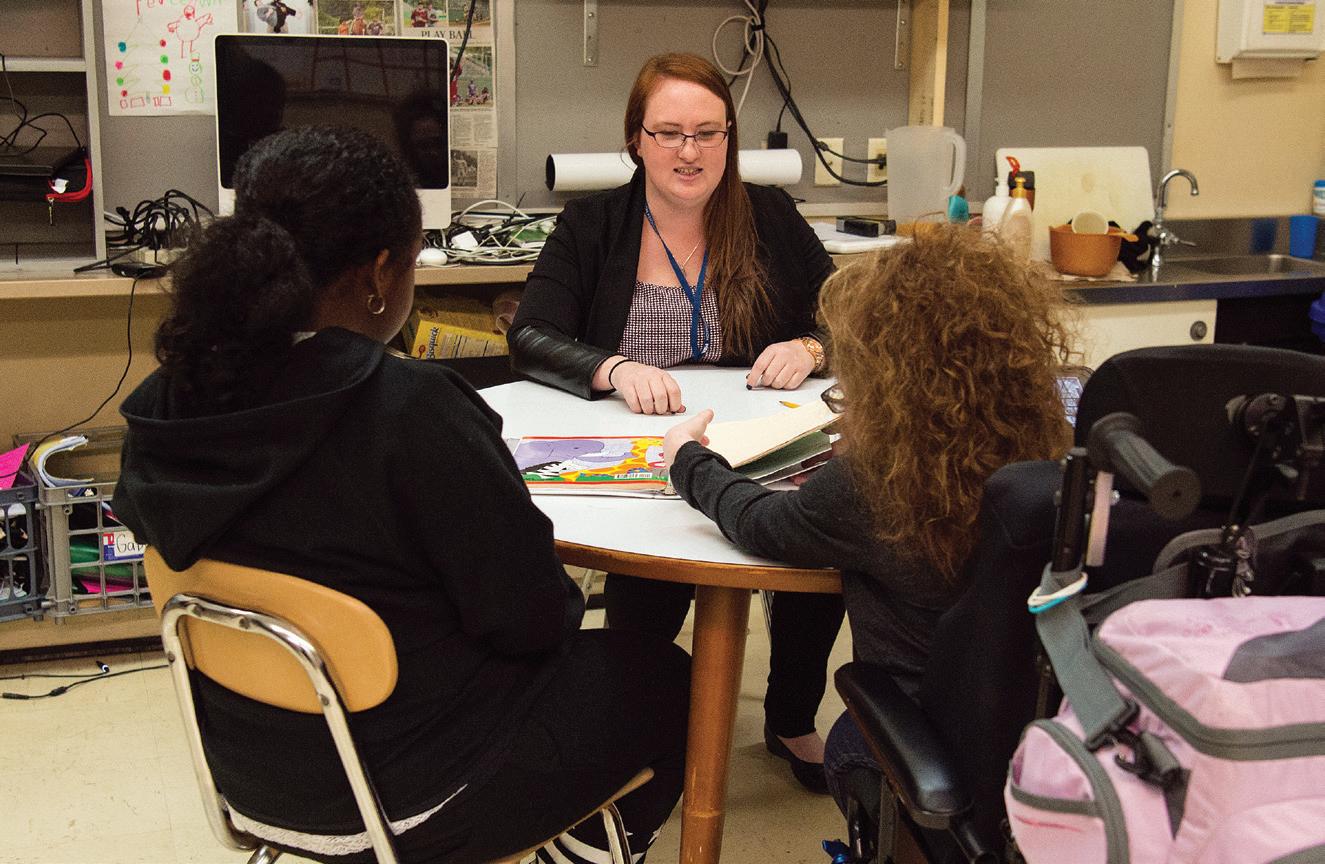
Intercollege programs draw on the resources of faculty and courses from multiple colleges.
• Child Maltreatment and Advocacy Studies: The Intercollege minor in Child Maltreatment and Advocacy Studies is designed for students who wish to supplement their academic majors with studies in child protection and well-being.
• Early Development and Education: The Intercollege minor in Early Development and Education affords the opportunity for students to study practices and policies informed by research and theory covering the period in human development from prenatal to three years.
Learn more about these and other minors here:
The College of Education cares about the whole student, and offers resources to help students be their best selves, to succeed both personally and academically.
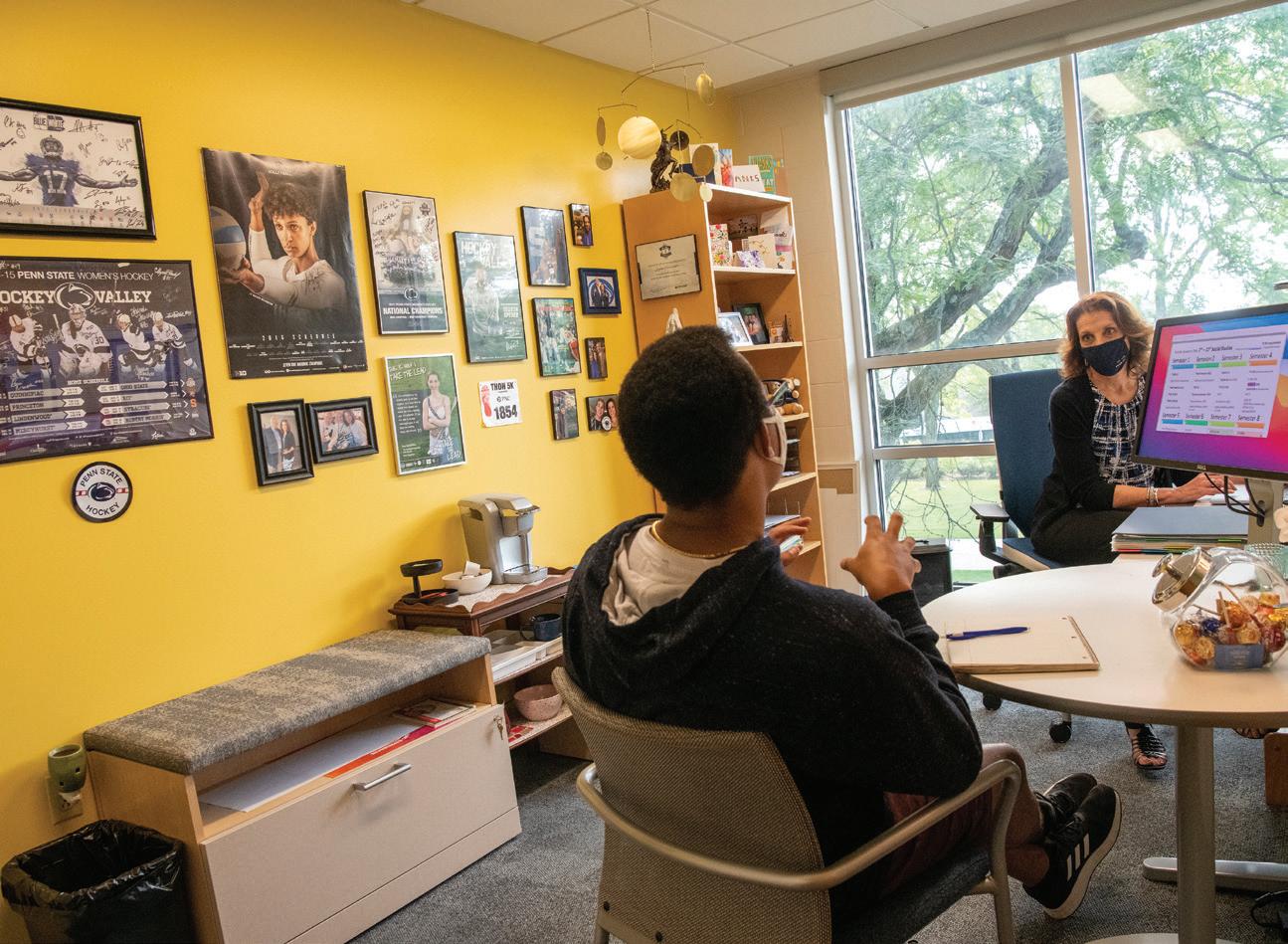
In the College of Education, your academic adviser can assist you with:
• Assuming responsibility for meeting academic program requirements
• Crafting a coherent educational plan
• Using information from various sources to set and achieve educational goals
• Connecting with student organizations and support services
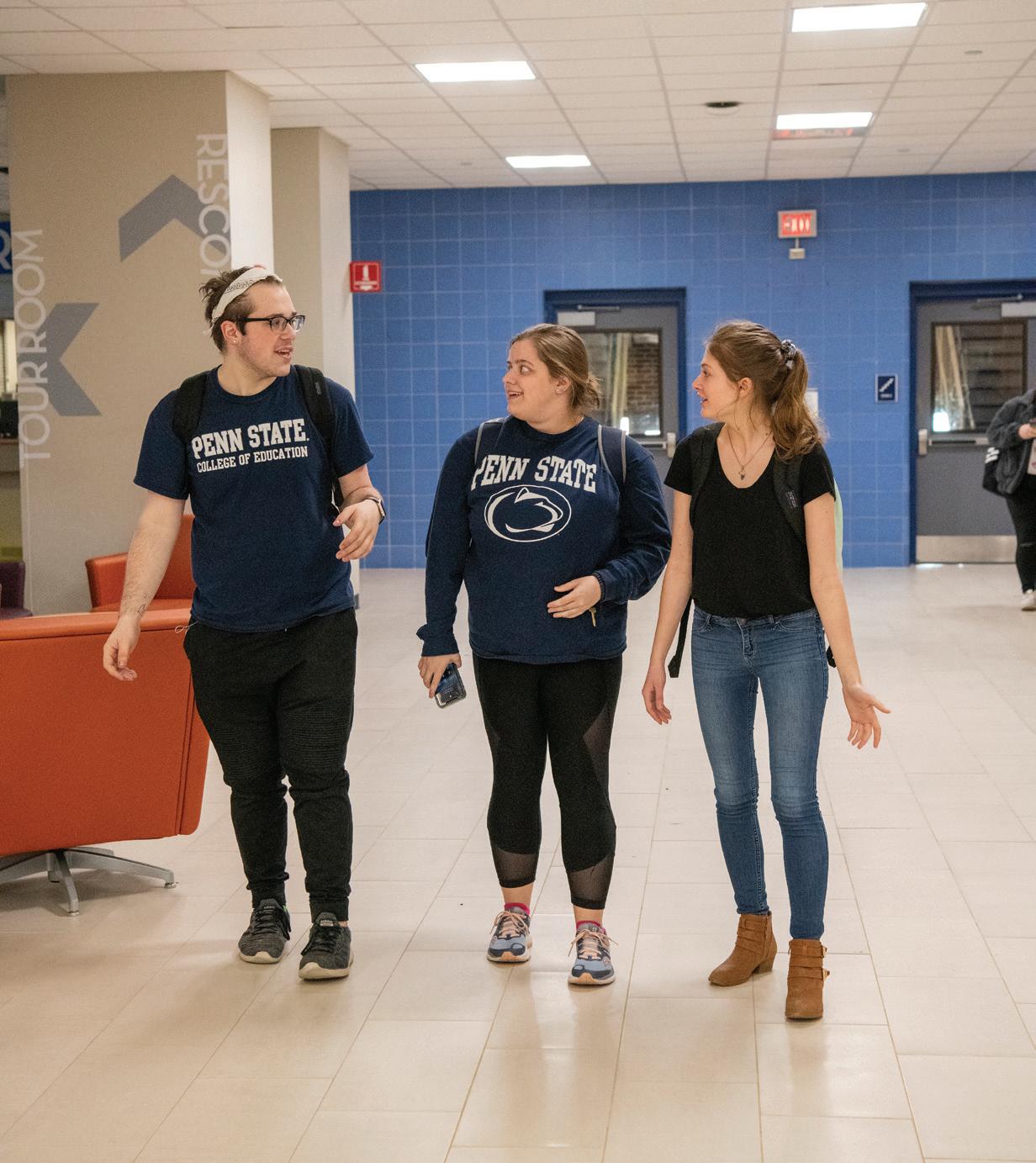
• Articulating the meaning of higher education and the intent of the University’s curriculum requirements
• Integrating into professional life through internships and career development opportunities
The Dr. Edwin L. Herr Clinic is run by the Department of Educational Psychology, Counseling, and Special Education. The clinic provides free mental health services to College of Education undergraduate and graduate students, both in person and via Zoom.
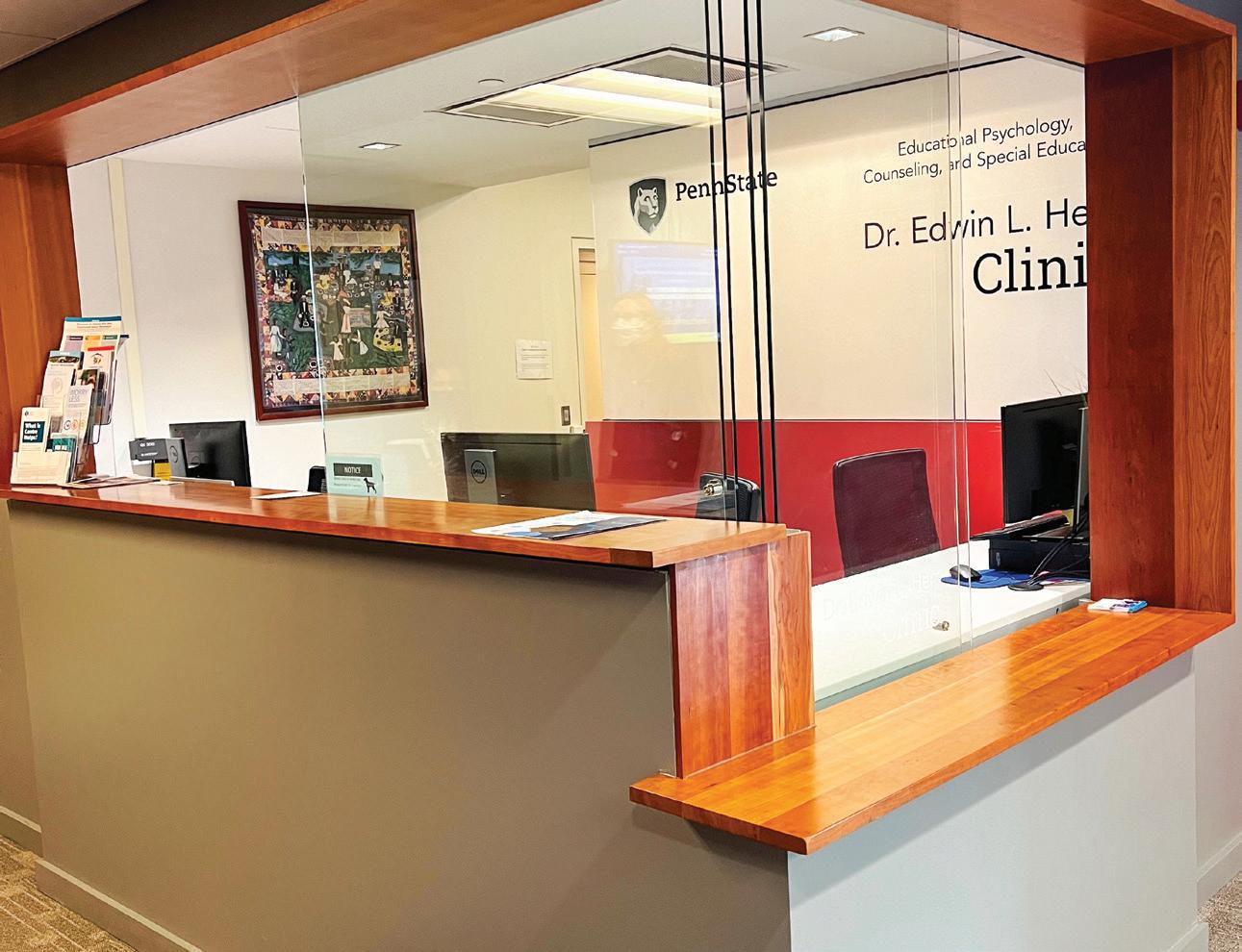
The College of Education Special Living Option (SLO), the First-Year in Education “Education House,” places importance on career exploration, multicultural understanding and service. The SLO addresses the needs of the students who choose to live there and offers experiences that help shape their first year.
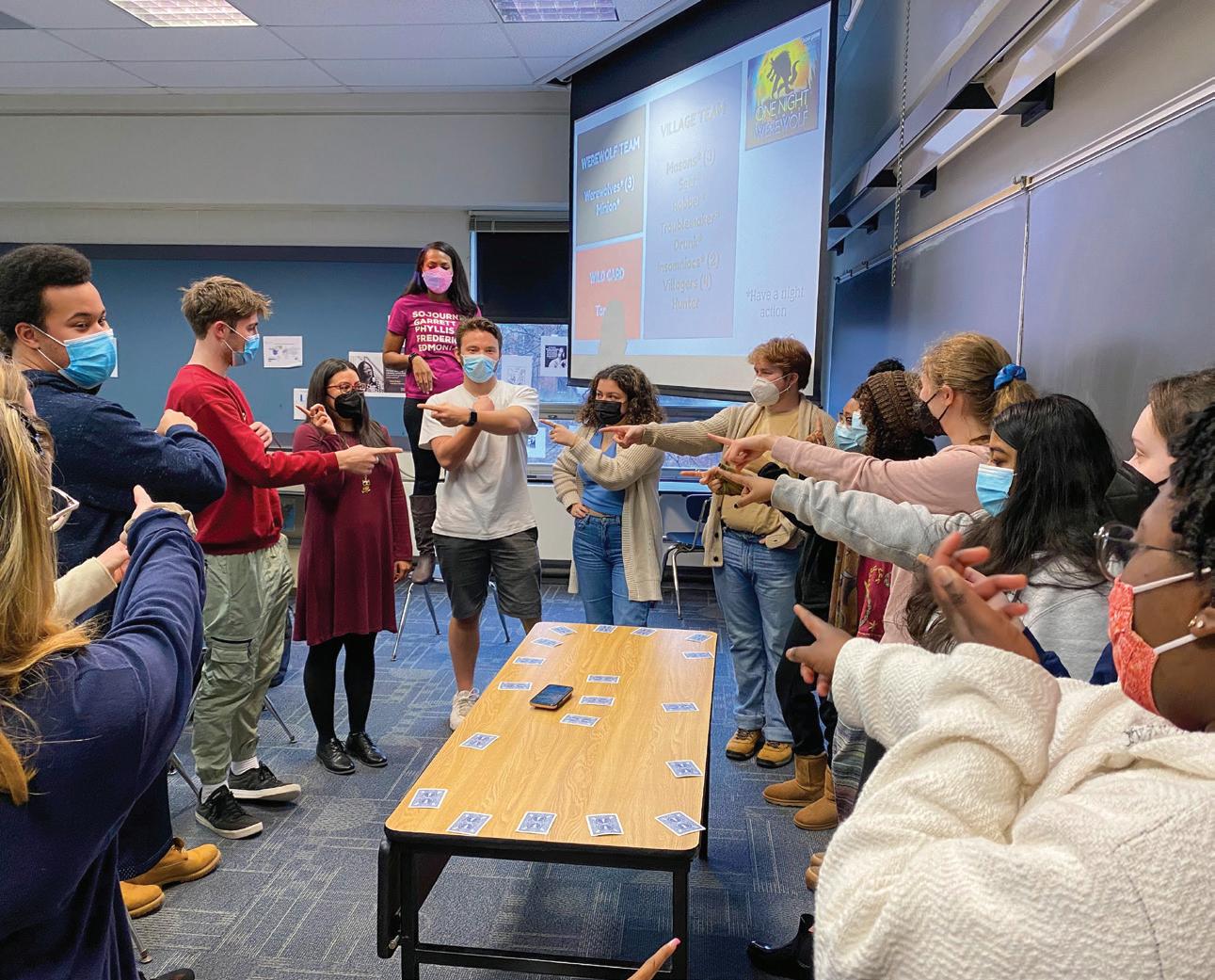
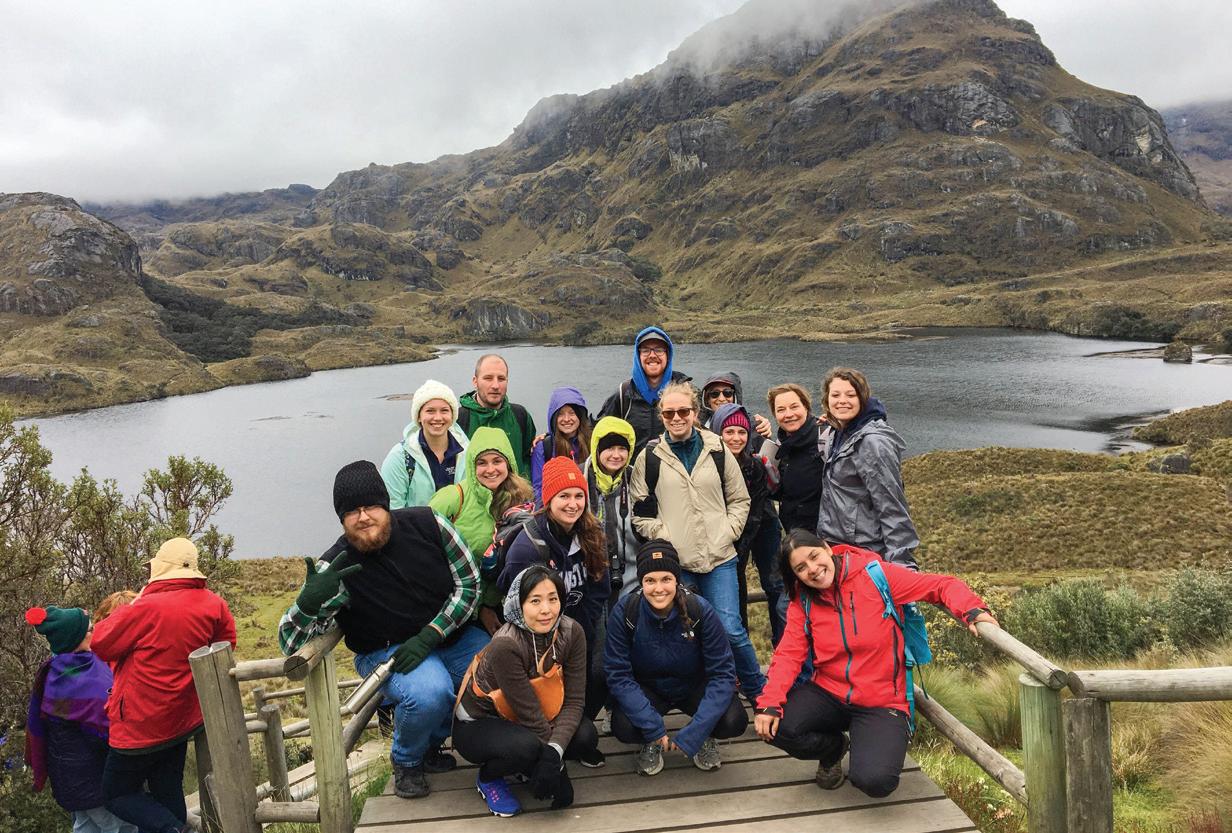
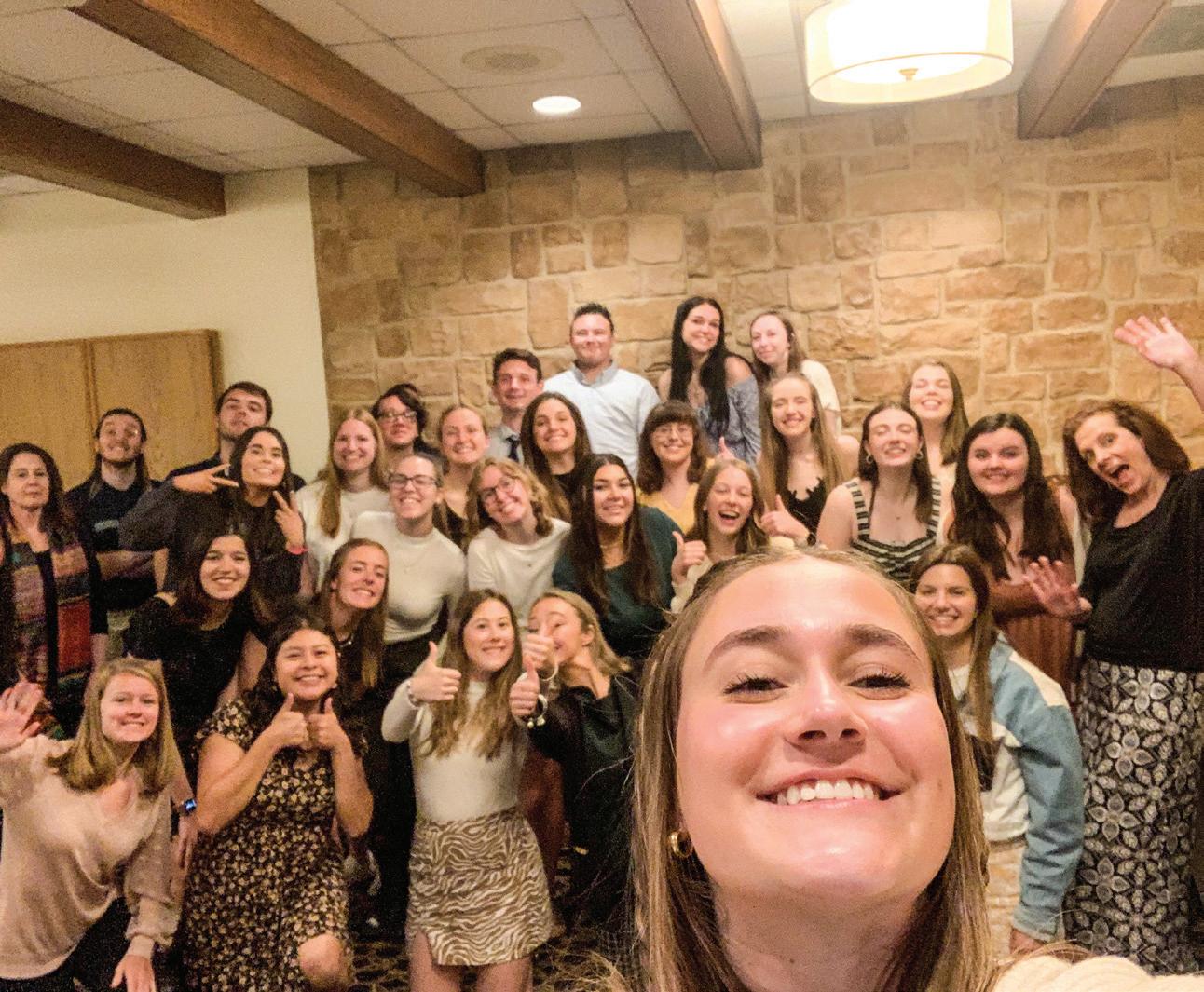


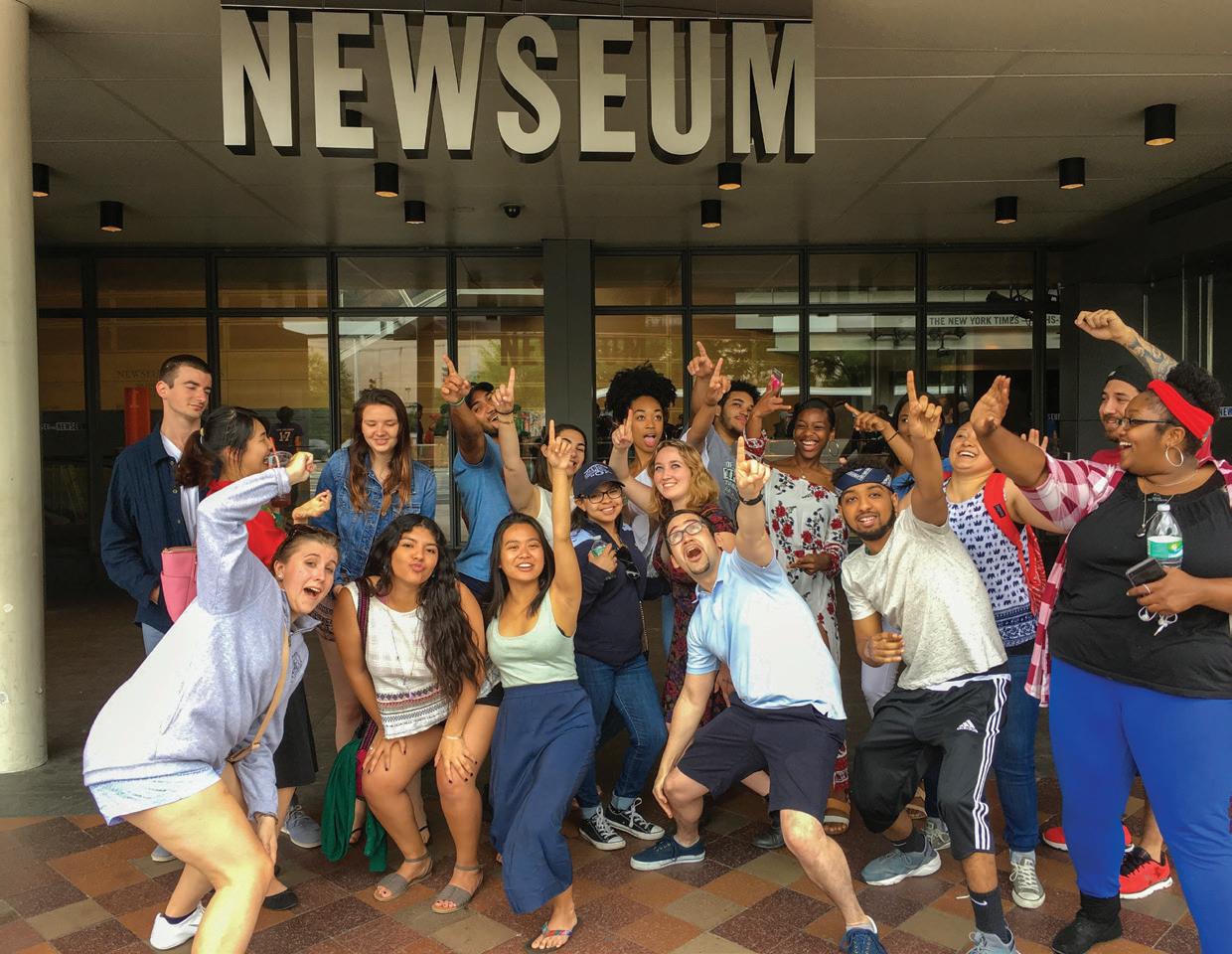

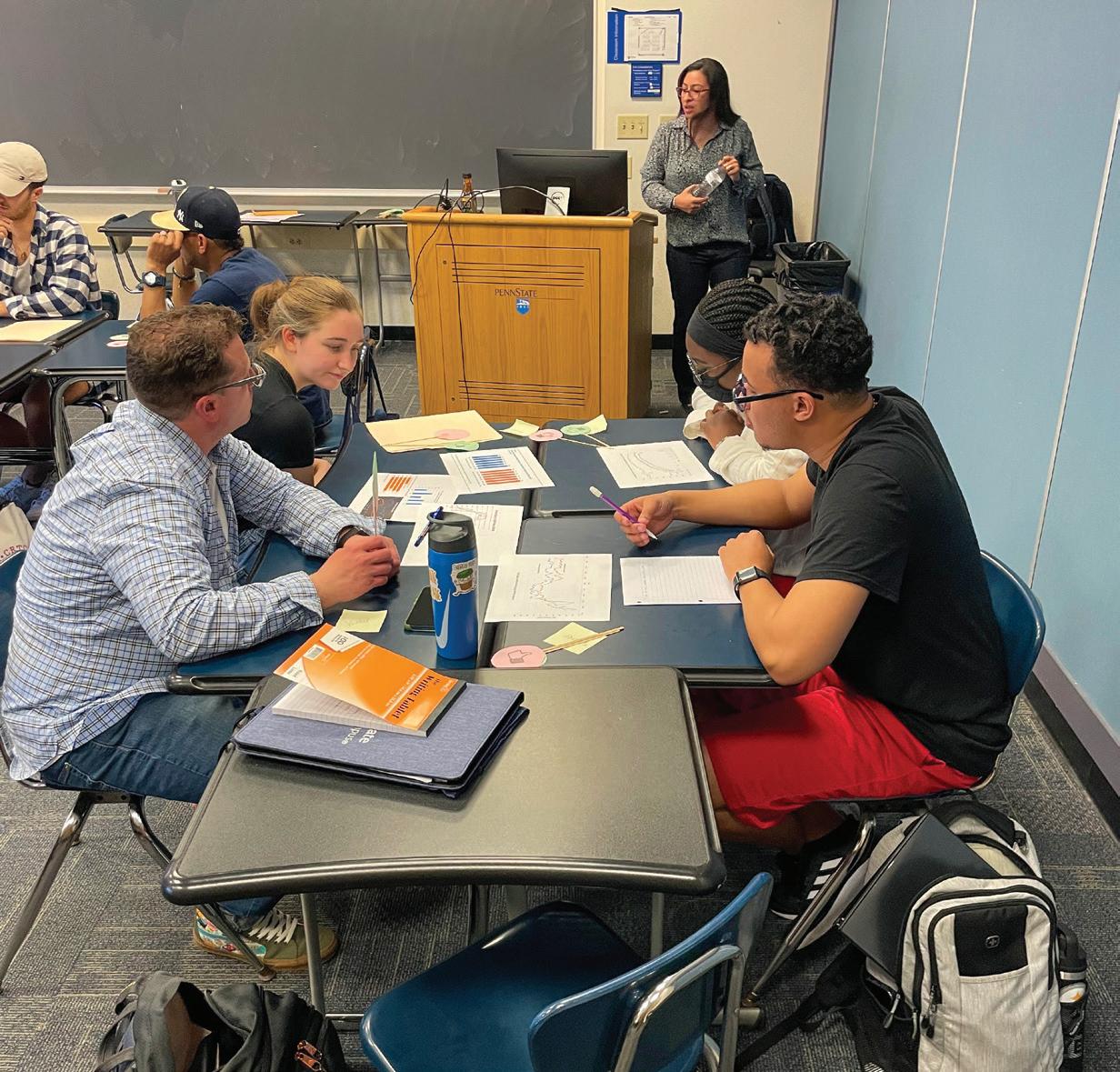

Following are student groups within the College of Education. A complete list of University-wide student organizations and activities can be accessed on the Student Affairs website at http://www.clubs.psu.edu


• College of Education Student Council
• Educational Leadership Student Association (ELSA)
• Education Policy Studies Student Association
• Future Educators Association - Multicultural Education Student Association (FEA-MESA)
• Society of Integrated Education
• Students Together in Education Policy (STEP)
• International Education Student Association (IESA)
• PSU Council for Exceptional Children (CEC)
• Pennsylvania Council for the Social Studies (PCSS) and National Council for the Social Studies (NCSS)
• Pi Lambda Theta international honor society
• Phi Delta Kappa professional association
• National Association for the Education of Young Children (NAEYC)
• Pennsylvania Association for the Education of Young Children (PennAEYC)
• Rehabilitation and Human Services Student Organization
• Student Affairs Student Organization (SASO)
• Student Pennsylvania State Education Association
“One of the best opportunities I ever had in the College of Education was taking my first-year seminar with Dean Lawless! She was just so cool and I saw her around Chambers Building all the time! The college is so close-knit that our deans are easily accessible and available for students, which is amazing.“
—Valarie Hibbard (I’m the one taking the selfie with some of our Education Student Council members)

Curriculum and Instruction Field Experience (CIFE): Teacher candidates have the opportunity to observe and teach in settings that include diverse populations, students with special needs, and students of different ages as an integral part of the undergraduate education major. Field experiences can begin in the third semester and culminate in a student teaching practicum where the student is engaged in full-time teaching responsibilities. Education & Public Policy - Internship: This major includes a semester field experience culminating in a real-world, meaningful research project. Opportunities for internships include organizations in State College, Harrisburg, Philadelphia, and Washington, D.C.
Rehabilitation and Human Services Internship: The major focus of the RHS internship is on learning professional skills, abilities, and activities practiced in rehabilitation and human services settings where the focus is on helping clients develop psychosocial, physical, recreational, vocational/career, social, and/or independent living skills. Students will be involved in as many aspects of the RHS process as their academic training and variations in agency/facility functions and services permit.
I worked as a Legislative Fellow in the Pennsylvania House of Representatives, and it was one of the best experiences of my college career. Being in Harrisburg gave me a chance to watch the legislative process in action and apply what I had learned in the classroom to the real world. I had the chance to help research and analyze policy, attend hearings, assist in committee meetings, and draft my own original piece of legislation. Working as a Legislative Fellow gave me the opportunity to have a hands-on role in shaping Pennsylvania’s education policy and a front row seat for learning about the legislative process.
 — Meghan Buchle, ’21
— Meghan Buchle, ’21
Culture and Disability (Ireland): This four-week, 6-credit course is the only study-abroad program at Penn State that is focused specifically on disability. Students in this course will learn about different aspects of culture and disability through meeting with various service agencies in Ireland that provide resources, advocacy and assistance to people with many different types of disabilities. Throughout the program students will be comparing attitudes and stigma toward people with disabilities as well as policies, services and resources that exist in the U.S. and Ireland.
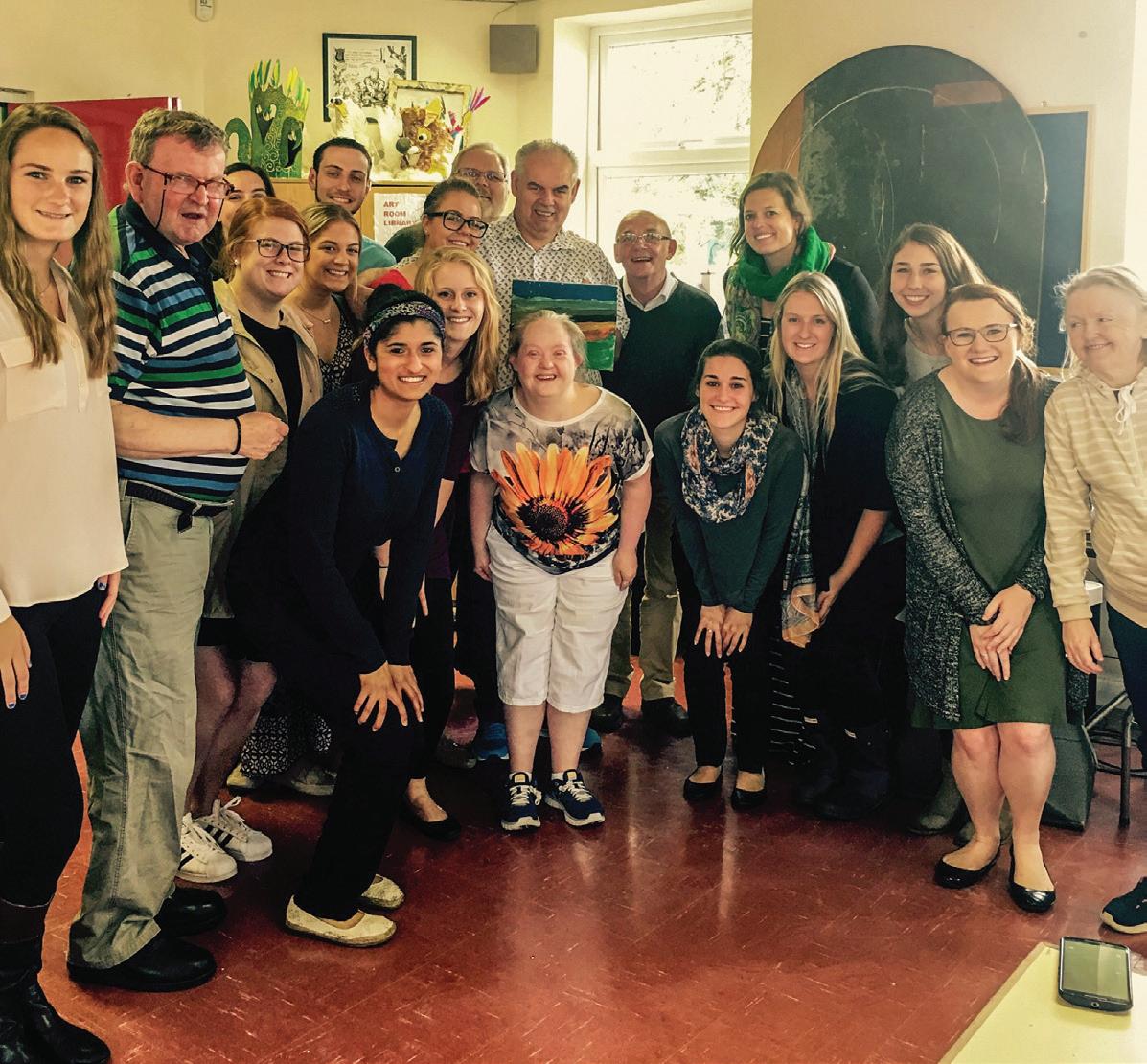
D.C. Social Justice Initiative: The program is unique in that social justice is at the core. It is a collaborative project between the College of Education’s Department of Curriculum and Instruction, its Office of Education and Social Equity, and Georgetown Law and D.C. Public Schools in Washington, D.C. It is a two-semester, creditbearing program that combines theoretical analysis with hands-on clinical explorations of law, education, policy and systems of inequity through a field teaching experience in under-resourced schools in Washington, D.C. Students from any college or major within the University can apply.
Maymester in Mexico: This is a 4-credit program with one 2-credit course in the Spring semester and one 2-credit course during May/June in Oaxaca, Mexico. The study abroad experience at the Universidad Autonoma in Oaxaca, Mexico is designed for Penn State undergraduates from all campuses, schools, and fields of study. The program offers hands-on learning experience to build linguistic and cultural competencies.
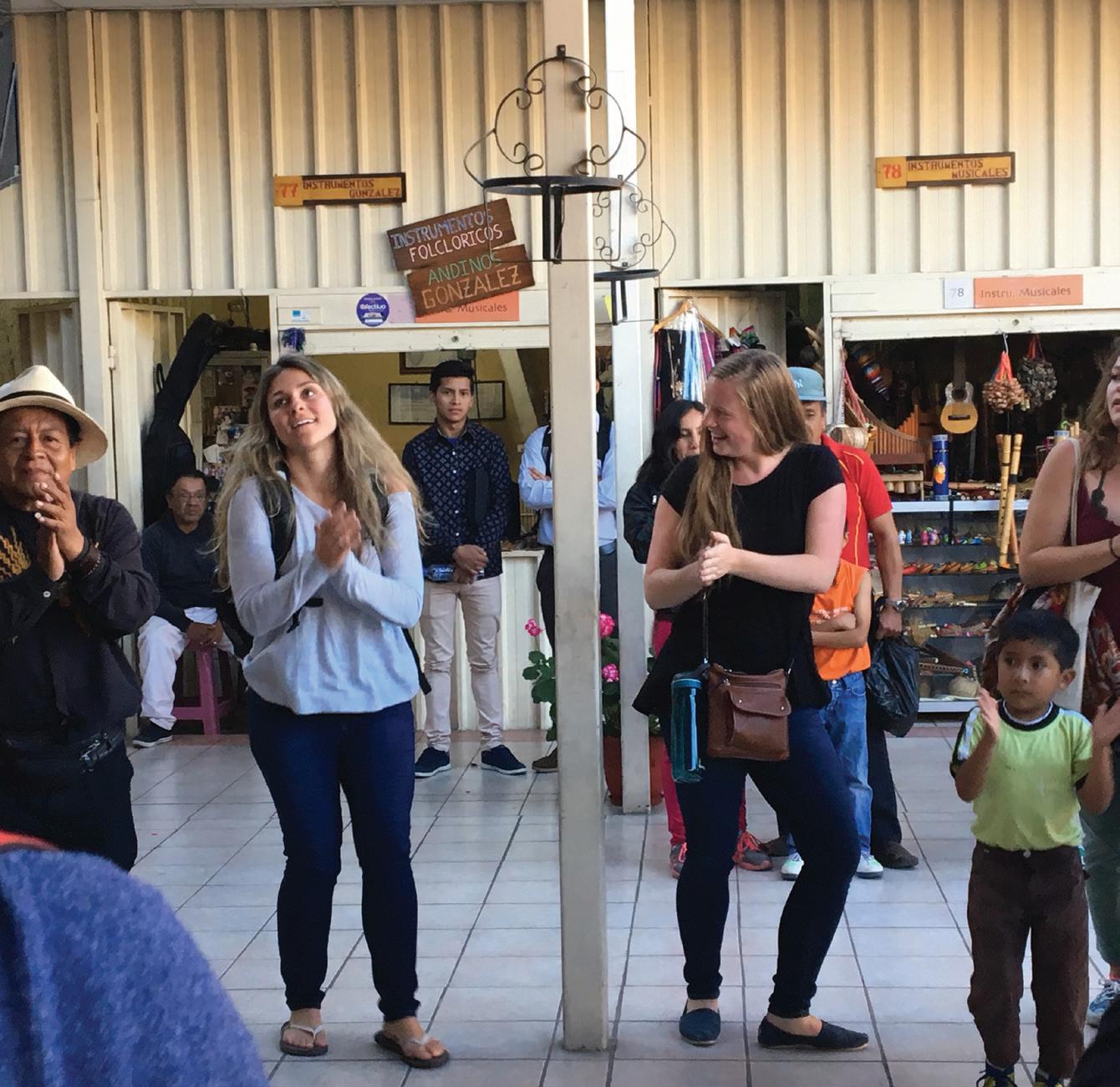
Philadelphia Urban Seminar: This two-week, intensive course is designed to acclimate students to the cultures of the city, While students learn the application of educational theory, they have the opportunity to live as visiting members of thriving, vibrant urban contexts — neighborhoods, communities and schools.
Teaching ESL with Immersion Experience: The ESL certificate can now be completed with a field teaching experience abroad. The immersion program includes courses at Penn State University Park and at the Universidad de Cuenca, Ecuador for a summer intensive study experience. There are five courses that make up the ESL certificate program and the summer experience in Ecuador includes one course in the Spring semester (offered online with two weekend in-person sessions) and two courses (6 credits) which integrate a teaching practicum and language and cultural learning at the Universidad de Cuenca in Ecuador. Each year, in late June, the group travels with Penn State faculty to Ecuador’s Andean highlands for an intensive five-week culture and language immersion and practice teaching experience.
In the College of Education, we define the term “diversity” broadly and are committed to fostering and respecting differences including but not limited to ethnic origin, race, cultural background, religion, gender identity, sexual orientation, geographic and linguistic background, previous career experience, age, and abilities. In addition, we strive to respect differences in philosophy and points of view and emphasize the open debate of ideas on their merits.
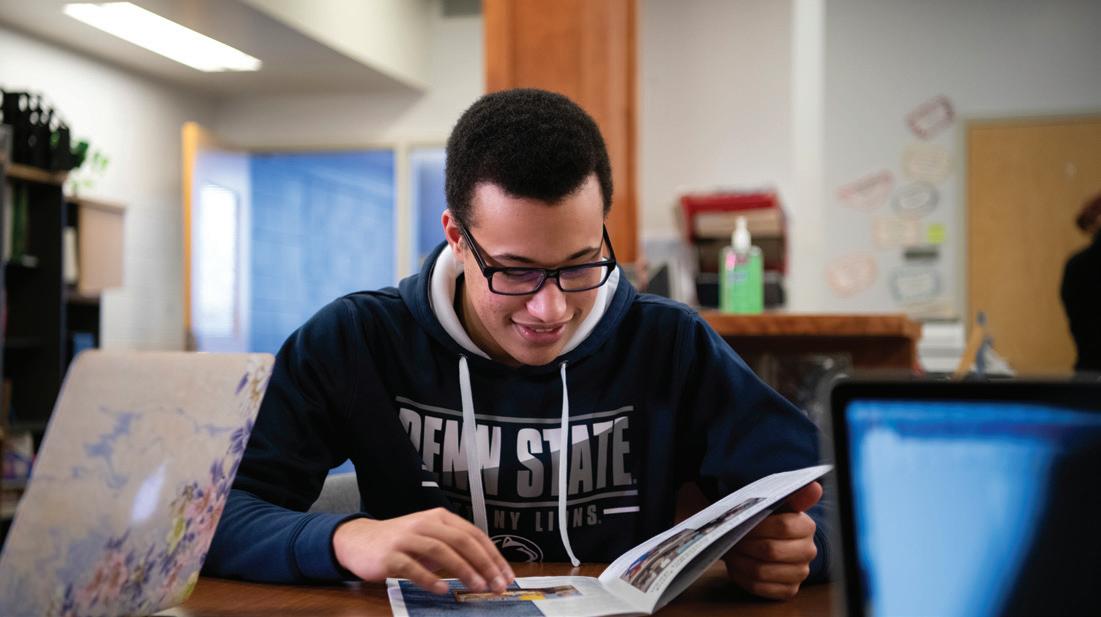

The Office of Education & Social Equity (OESE) works to foster equity and inclusion by creating educational opportunities and experiences, raising awareness and developing strategies and tools to enhance intercultural, racial/ethnic competence.


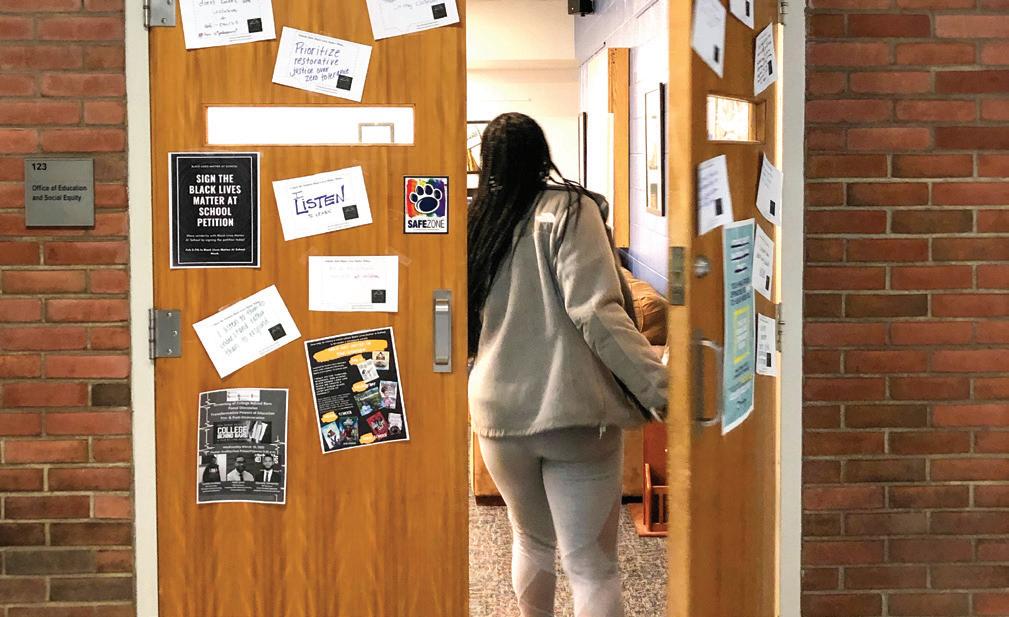
The role of the OESE is to support all members of the Education community — students, faculty and staff – in raising, addressing and responding to issues of educational equity and social justice. Through various types of educational programming, partnerships, outreach and professional development, we work on developing the skills that will enable all our students to become better educators and leaders.
S.C.O.P.E.
“There have been many pivotal and special moments during my time in the College of Education. In particular, the Office of Education and Social Equity has been my home away from home, a place where I have met so many wonderful people and had insightful experiences that have equipped me to embark on a journey toward educating for change through equity.”
— Mia ThomasThe Summer College Opportunity Program in Education (S.C.O.P.E) provides current high school sophomores from diverse backgrounds with an opportunity to experience college course work and learn about careers in the education field. Eligible students must be nominated by a school or organization official. For more information, visit https://bit.ly/CoE_SCOPE
The Restorative Justice Initiative is a group of Penn State students, faculty, staff, and community stakeholders committed to empowering and supporting system-impacted, currently and formerly incarcerated individuals through education and meaningful civic engagement. It believes in the power of trauma-informed practice, liberatory pedagogy, and transformative education and is dedicated to leveraging Penn State’s size, scope, reach, and resources to help make education accessible to all sectors of society. Through education, collaboration, and community engagement RJI works to remove structural barriers to education and reentry while preserving the human dignity of those impacted by the carceral state.
The Diversity & Community Enhancement Committee (DCEC) comprises faculty, staff, and student volunteers from across the College of Education. The DCEC serves the College of Education through a mission of discussion, education and promotion of an environment that is conducive to scholarship and learning and respectful of diverse backgrounds and viewpoints.
The SEA Network is the College of Education’s newest Alumni Affiliate Program Group, made up of BIPOC alumni engaging, elevating and empowering Penn State College of Education students from the past, present and future. The group strives to connect, inform and build bridges to and beyond the College of Education, providing community and support, both personal and professional, so that BIPOC students, alumni and staff in the College of Education thrive.

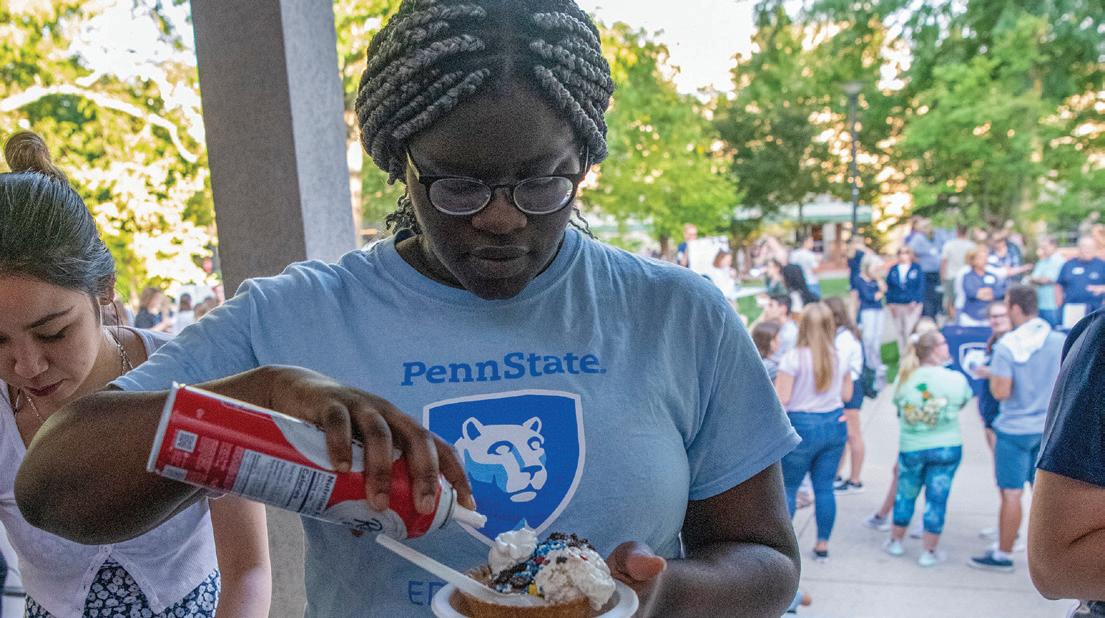
The Penn State College of Education is committed to reimagining education to improve the lives of learners, educators, and community members at the regional, state, national, and global levels. Through our work, we will contribute to the creation of more equitable educational opportunities and outcomes for learners across their lifespan, ensuring all learners acquire essential literacies, and supporting the mental health and well-being of all learners and educators. Our commitment to these areas will be supported by our actions in four areas: 1) Community Enhancement and Development; 2) Transforming Educational Professionals; 3) Research Addressing Social Issues; and, 4) Outreach, Dissemination, and Partnerships. Ultimately, we endeavor to change our education systems to educate for change to create a more equitable society for all.

The WorkLink program is a fully integrated, on-campus, non-residential two-year certificate program, in WorkLink Strategies and Employability, at Penn State University Park. The WorkLink program provides the opportunity for individuals with Intellectual Disabilities (ID) to participate in postsecondary experiences and education alongside their peers. WorkLink directly aligns with the University’s mission statement and Strategic Plan, particularly related to diversity, student engagement, access to education, and economic development.
• Provide a focus on integrated work experiences, career skills, academic enrichment, socialization, independent living skills, financial literacy, and self-advocacy skills that lead to community-integrated, customized and/or competitive employment.
• Develop and supervise internships for participating students
• Work with community partners and employers (including Penn State) to identify training sites and opportunities for student to gain employment upon completion of program.
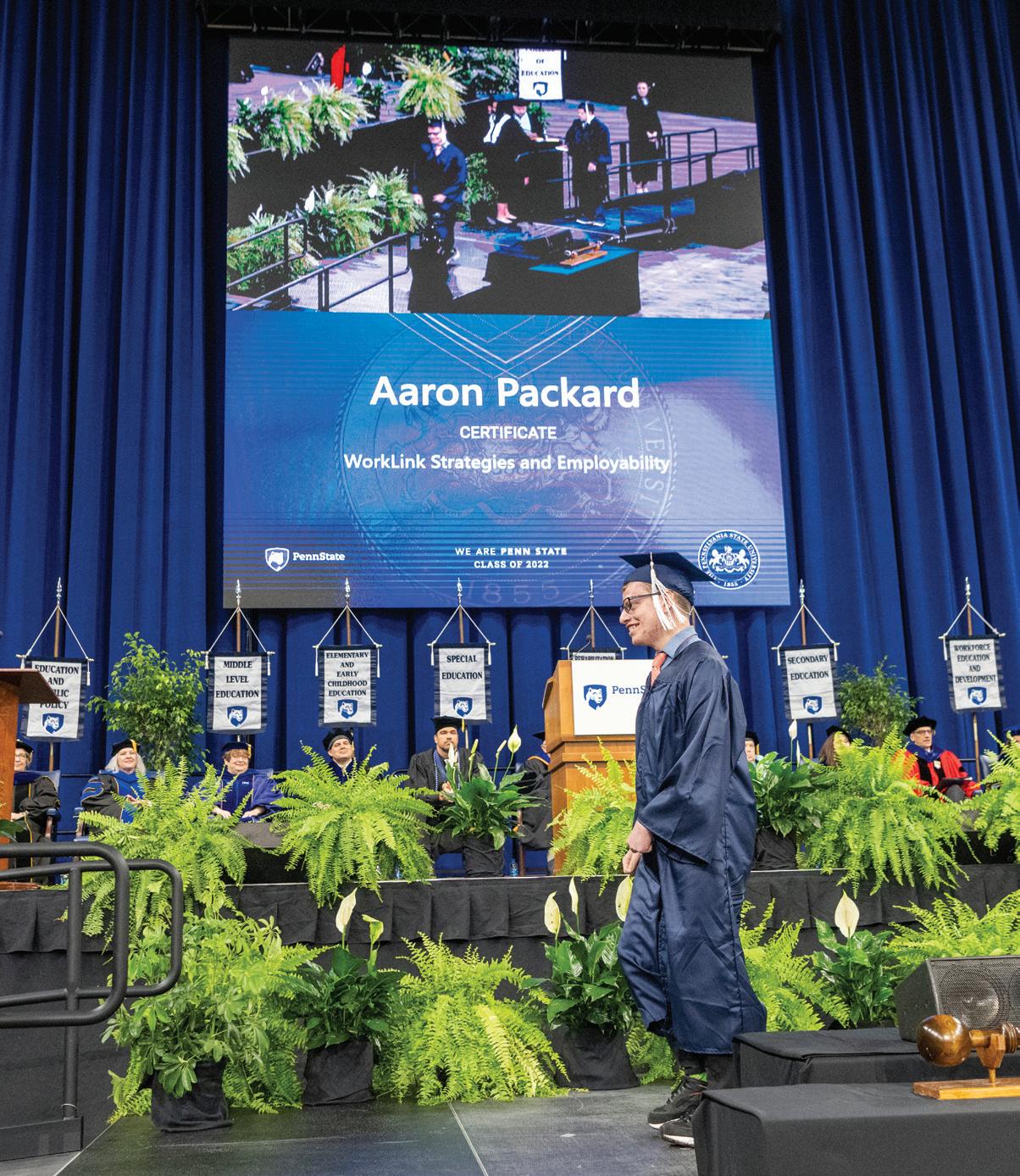
Students from across the Penn State University Park campus can get involved with WorkLink. Involvement is especially helpful for students who are majoring in special education. Three ways to get involved:
• Social mentorship: help students in the WorkLink program get to know Penn State, make friends, and find fun things to do.
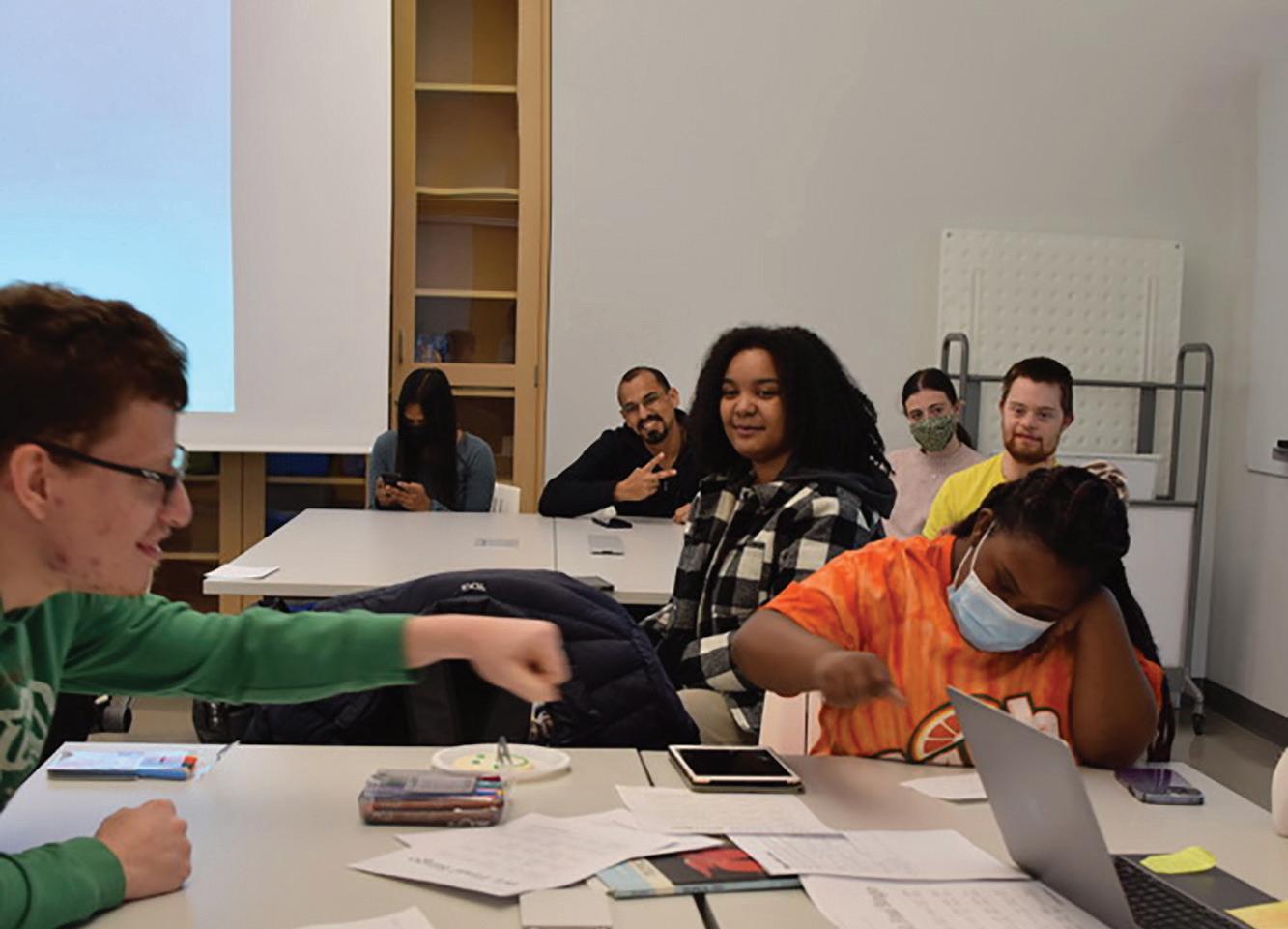
• Academic mentorship: WorkLink students take Penn State classes for audit and are paired with academic mentors for help with homework and studying. Mentors can also help in class if needed.
• Internship: Interns work 40 hours per week and are paid $10/hour. Interns also may receive academic credit for this experience. WorkLink interns have a variety of responsibilities that they manage throughout the semester, working closely with WorkLink faculty.
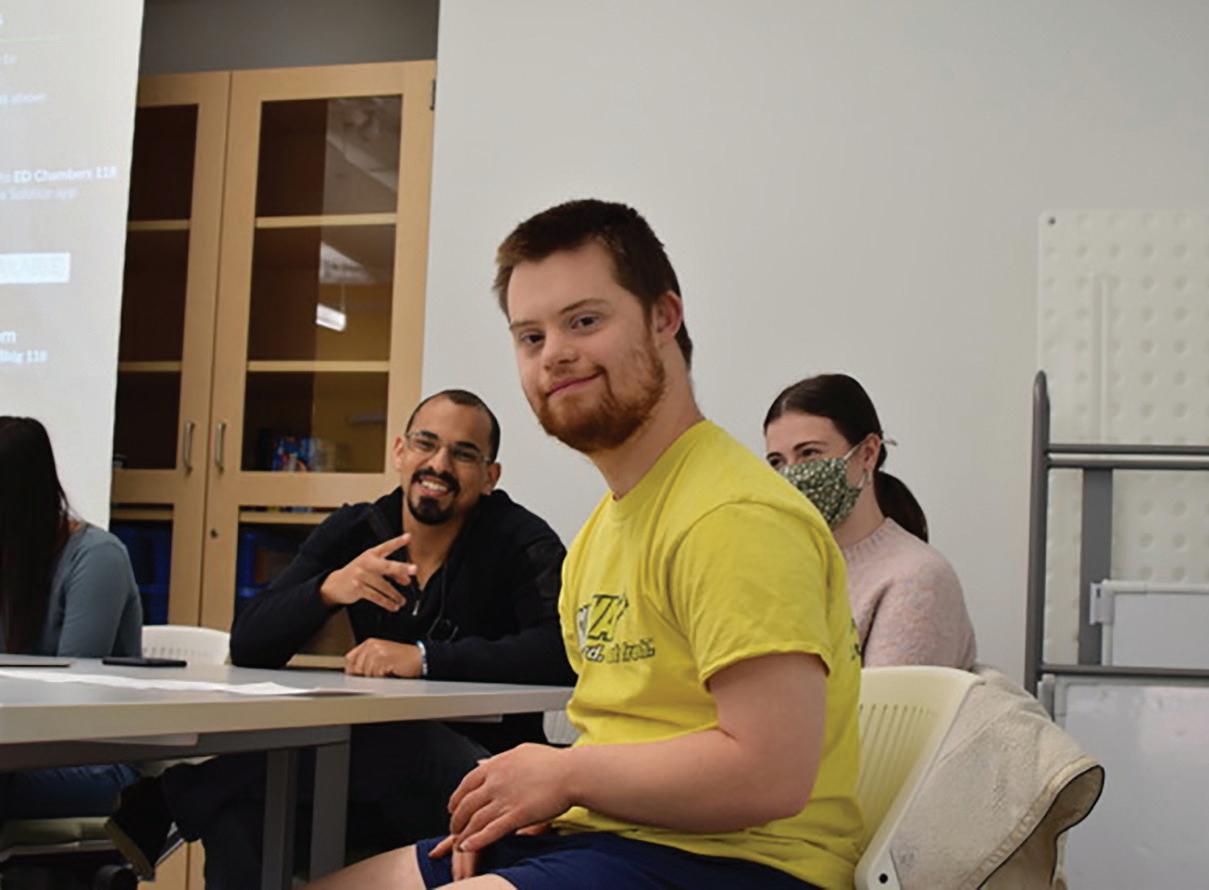
Being part of the Penn State College of Education connects you with the roughly 11,500 members of the College of Education Alumni Society. The Alumni Society helps serve the needs of the college, and promotes the esteem of the institution. It offers programs directed toward alumni and also toward students. Two programs that connect alumni with current students are:
Alumni who volunteer for the AlumniStudent Teacher Network coordinate educational seminars and social gatherings for the student teachers. The Network provides an excellent opportunity for alumni to share their experience and expertise with student teachers and for the students to network with education professionals.
This program gives students an opportunity to tap into the knowledge and expertise of Education alumni. Alumni can give students advice on career paths and help students establish a network of alumni and other education professionals. Contact is made through the Alumni Relations Office and matches are made based on shared career interests.
Penn State Career Services offers programs and services that support and facilitate career development for all students. Programs and resources are provided to assist students and alumni in specifying career goals, expanding knowledge of career alternatives, understanding effective decision making, and acquiring appropriate strategies and skills to carry out the process.
Each spring, the College of Education Undergraduate Student Council holds this event designed to bring undergraduate students valuable information related to professional development and growth. Topics include wellness; Q&A sessions with expert panels; resume and interview workshops; and social justice in education.
Also each spring, the College of Education Graduate Student Council holds an event designed to bring graduate students valuable information about applying, interviewing, and accepting jobs in higher education and beyond. Topics include wellness; preparing academic and industry job documents; giving effective job talks; and giving an effective interview.
— “My mentor is really great at providing any help that I ask for and going above and beyond so that I feel prepared.”
— “My mentor shares her experiences with me that will be helpful to take note of for when I student teach.”
— “I have enjoyed the program and believe it was a formative part of my learning experience at PSU.”
“The memories and lessons I gained during my time at the College of Ed have gotten me through some of the most difficult years in this profession! Whenever I feel challenged, I think of the college’s passionate professors and innovative courses that are working to make meaningful, equitable change in education — and how they prepared me to live that legacy out in the world.”
Hannah Kohler ’18First Grade Teacher Girard College Philadelphia, Pennsylvania

“Attending Penn State was such an eye-opening experience. At first, it was overwhelming to get acclimated to such a big campus but after a while, I found my footing. I am so grateful to The College of Education for helping me find my way. My only regret is not getting involved more!”
Jessica Powell ’07Academic Adviser
The City University of New York
Eugenio Maria de Hostos Community College Bronx, New York

“I enjoyed my full experience at Penn State. Academically, I found I was significantly more successful with the major-focused classes through the College of Education. They provided me with knowledge that I use routinely today in supporting people with disabilities.”
Scott French ’00Behavior
SpecialistResidential Program Manager
Catholic Charities of Broome County Binghamton, NY

“The quality of my doctoral experience in the College of Education surpassed my expectations. It provided me with an opportunity to challenge myself in ways I never imagined. The education from Penn State shaped me into a solid researcher and teacher. I learned how to be a faculty member from some amazing mentors there. Every day, I use what I gained while in the College of Education at Penn State to develop current and future educational leaders.”
Carl H. (Kip) Sorgen, Ph.D. ’11g

Associate Professor of Educational Leadership
Georgia Southern University Statesboro, Georgia
The Penn State College of Education is committed to reimagining education to improve the lives of learners, educators, and community members at the regional, state, national, and global levels. Through our work, we will contribute to the creation of more equitable educational opportunities and outcomes for learners across their lifespan, ensuring all learners acquire essential literacies, and supporting the mental health and wellbeing of all learners and educators. Our commitment to these areas will be supported by our actions in four areas: 1) Community Enhancement and Development; 2) Transforming Educational Professionals; 3) Research Addressing Social Issues; and, 4) Outreach, Dissemination, and Partnerships. Ultimately, we endeavor to change our education systems to educate for change to create a more equitable society for all.
We reimagine the existing EC-12 and adult education systems, including the College of Education, by identifying and addressing the systemic inequities that impede many individuals from realizing their full potential. We improve student outcomes, conduct research, develop effective policies and strategies, create new experiences for existing educators and students that are community-based and globally minded preparing the next generation of educators, integrate innovative technologies that contribute to our mission, and actively engage with families and in communities within and beyond our borders. We are deeply committed to progressive social change by bridging research to practice and developing partnerships with a wide array of individuals and organizations. We focus on equity and access, anti-racism orientations and practices, essential literacies, and the mental health and well-being of all individuals across the lifespan. We embrace the challenge of preparing a new generation of education professionals with the skills and dispositions needed to create powerful learning experiences for all learners, across the lifespan. Our mission is nothing less than being a leader in the creation of a more equitable and just education system for the people of Pennsylvania, the nation, and the world.
The Penn State College of Education will work collaboratively to transform education systems to promote progressive social change that leads to an equitable society and world, in which all learners, families, schools, workplaces and communities thrive.

The College of Education shares the University’s values of Integrity, Respect, Responsibility, Discovery, Excellence, and Community. In addition to those values, the College of Education strongly identifies with these values:
ANTI-RACISM/RACIAL JUSTICE — We strive to actively identify, describe, counter, and dismantle individual, interpersonal, institutional, and structural racism in all components of our work.
TRANSFORMING EDUCATION — We are committed to changing education to promote and practice equity in collaboration with international, national, and community-based partners to ensure an equitable and just world.
LEARNING ACROSS THE LIFESPAN — We are committed to cultivating purposeful learning for individuals and communities throughout development, transitions, and contexts.
SYSTEMIC UNDERSTANDING AND AWARENESS — We embrace the synergy among efforts to mitigate climate change, and to promote social justice, essential literacies grounded in deep and integrated disciplinary knowledge, mental health and well-being in changing education for healthy communities and the world.
GLOBAL UNDERSTANDING AND INCLUSIVITY — We are committed to supporting the exchange of knowledge and furthering research that includes perspectives from, and addresses issues pertinent to, the attainment of education for all around the globe.

The College of Education offers a variety of scholarships thanks to the generosity of alumni and friends. A single online application serves as the application for all general scholarships offered through the College. There also are scholarship opportunities available for enrichment opportunities (study abroad, student teaching awards, etc.) by separate application or nomination processes.

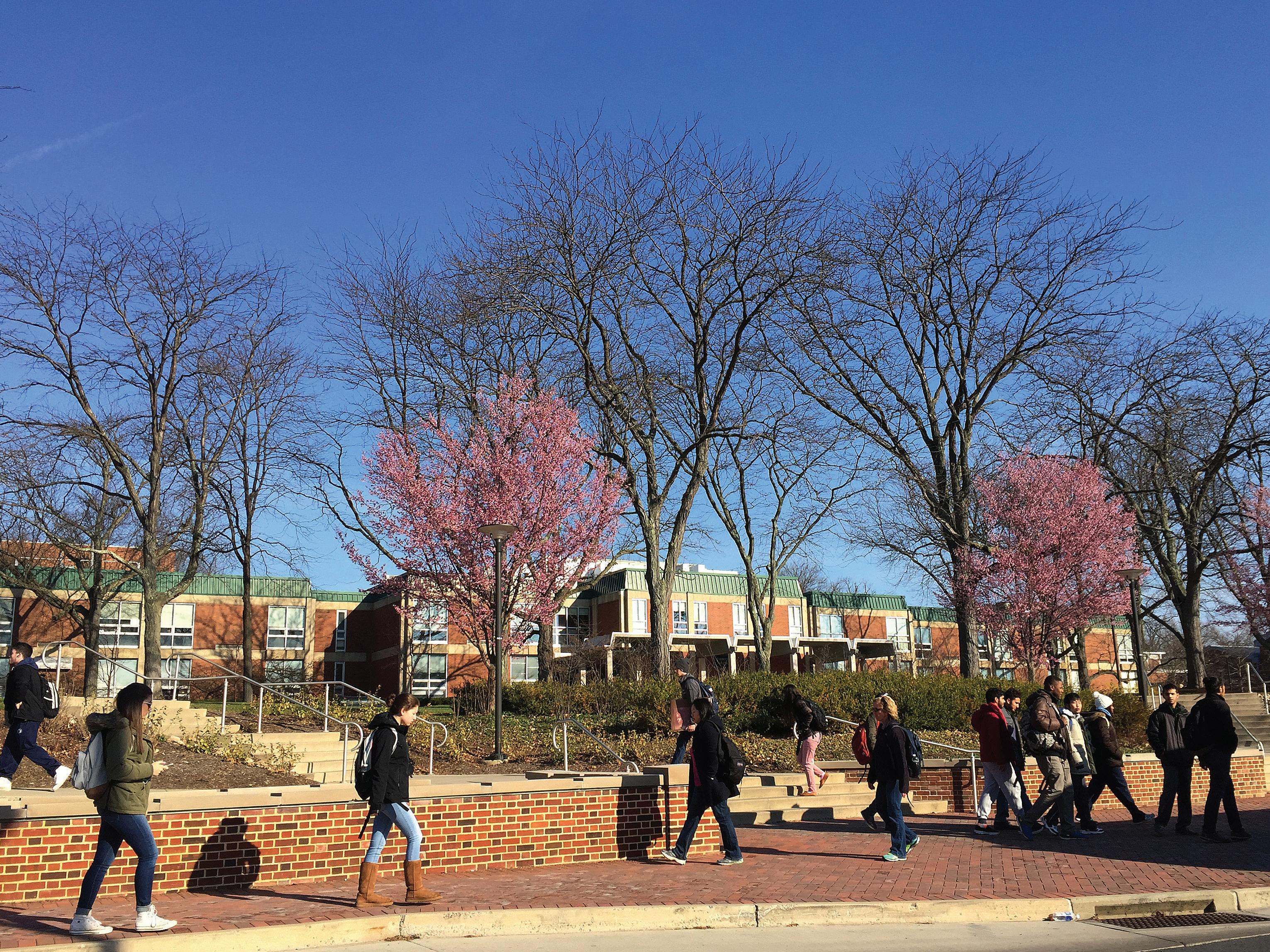
Penn State is committed to ensuring your investment in an education leads to high-quality opportunities in and out of the classroom and well beyond graduation. Penn State recommends that the Free Application for Federal Student Aid (FAFSA) be received by December 1 to receive maximum consideration for all types of student aid. The FAFSA is available online at studentaid.gov beginning October 1. Please visit the Office of Student Aid website at https://studentaid.psu.edu/
For more information, check our website:
Visit the College of Education to meet with an Education representative virtually or in person:
• Virtual appointments: https://apply.psu.edu/portal/ed-vr-appt

• On-campus appointments: https://apply.psu.edu/portal/ed-appt
Get more information about visits to the Penn State College of Education here: Apply

Applicants are evaluated on a modified rolling admissions schedule. Additionally, some academic programs have limited enrollment and specific application dates.
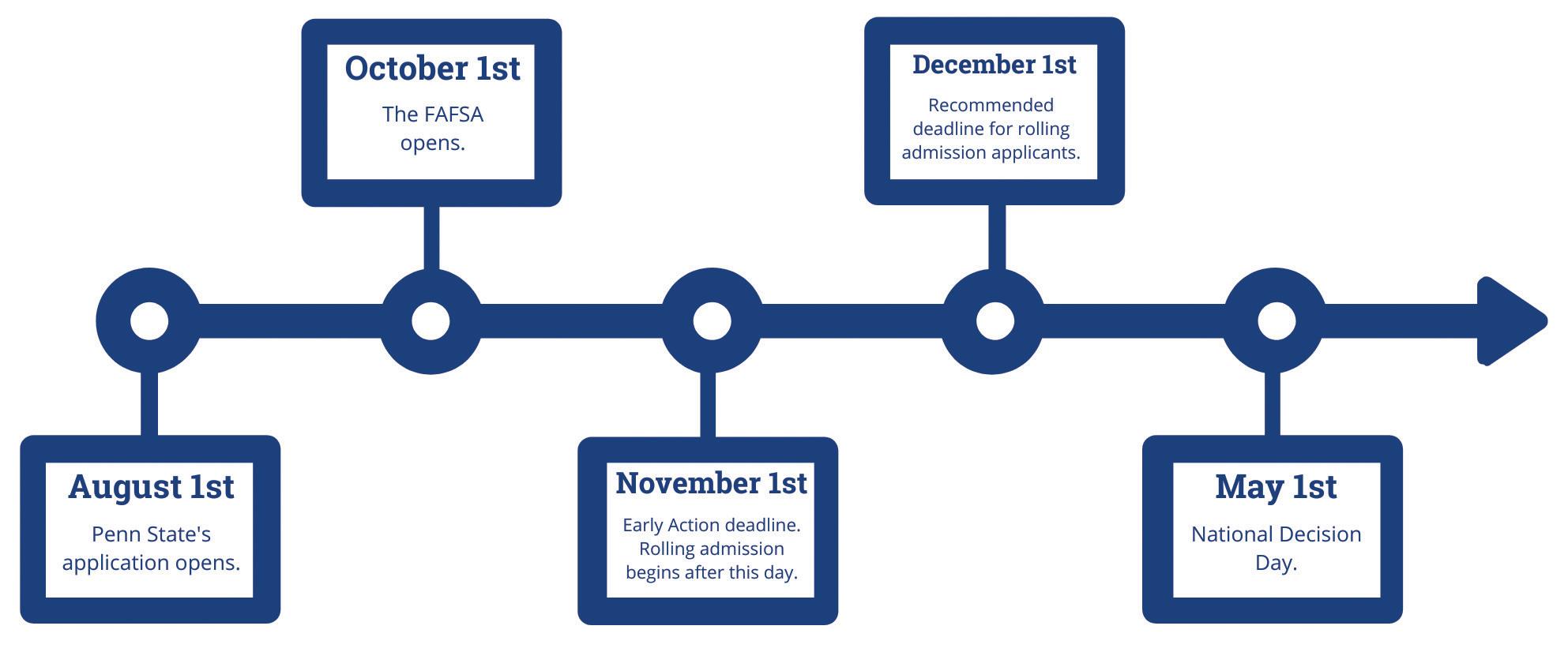
College of Education
The Pennsylvania State University 275 Chambers Building University Park, PA 16802
ed.psu.edu/
Photos taken by Annemarie Mountz, Steve Tressler, members of the CommAgency photo division, and provided by faculty, staff, students and alumni of the Penn State College of Education.
This publication is available in alternative media on request.
The University is committed to equal access to programs, facilities, admission and employment for all persons. It is the policy of the University to maintain an environment free of harassment and free of discrimination against any person because of age, race, color, ancestry, national origin, religion, creed, service in the uniformed services (as defined in state and federal law), veteran status, sex, sexual orientation, marital or family status, pregnancy, pregnancy-related conditions, physical or mental disability, gender, perceived gender, gender identity, genetic information or political ideas. Discriminatory conduct and harassment, as well as sexual misconduct and relationship violence, violates the dignity of individuals, impedes the realization of the University’s educational mission, and will not be tolerated.
Direct all inquiries regarding the nondiscrimination policy to the Affirmative Action Office, The Pennsylvania State University, 328 Boucke Building, University Park, PA 16802-5901, Email: aao@psu.edu, Tel (814) 863-0471.
U.Ed. EDU 23-07
CAMPUS SECURITY CRIME STATISTICS: The Jeanne Clery Disclosure of Campus Security Policy and Campus Crime Statistics Act and Pennsylvania Act of 1988 require that crime statistics for Pennsylvania colleges and universities be made available to applicants upon request. Penn State’s combined Annual Security and Annual Fire Safety Report includes statistics for the previous three years concerning reported crimes that occurred on campus, in certain off-campus buildings owned or controlled by the University, and on public property within or immediately adjacent to and accessible from the campus. The report also includes institutional policies concerning campus security, such as those concerning alcohol and drug use, crime prevention, the reporting of crimes, sexual assault, and other matters. You may obtain this information for the Penn State campus to which you are applying by accessing the website at www.police.psu.edu/ clery. A printed copy of the report may be obtained by writing to University Police & Public Safety, The Pennsylvania State University, Eisenhower Parking Deck, University Park PA 16802-6703 or by calling 814-865-1864.
